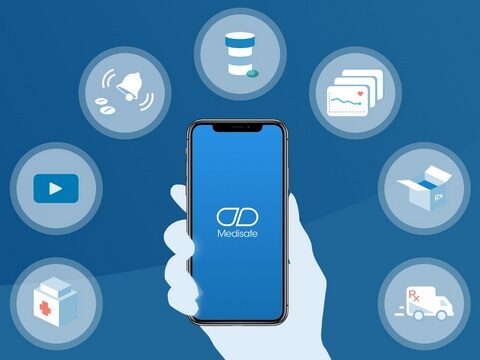Syndicated content, interview taken by Clinical Trials Innovation Summit 2018 by iqpc.
Across the world, most health systems are encountering similar problems in the Digital Age: the cost of care is rising, a global ageing population means more people are living with chronic conditions (which require multiple interactions with clinicians and services), and many patients are still experiencing a lack of continuity and personalisation in their care that undermines their confidence in the services they access.
What’s quickly becoming clear is that patients are no longer happy to simply accept a one-size-fits-all approach; one where the services on offer are disconnected and unaccommodating. They want a personalised patient-centred care journey that explicitly caters to their individual needs.
This rising level of patient discernment is due to the fact that patients with chronic conditions are often experts in their condition and care. They have greater access than ever to information about their condition as well as to peer-support. They are empowered and knowledgeable and want to fully participate in their care journey.
The good news is that digital technology is transforming how health care is delivered, markedly improving the patient experience. Just as the retail and banking industries have created almost seamless customer journeys, healthcare is utilizing the same technology to empower patients and provide them with personalized support. At the heart of this wave of innovation is the increasingly effective use of data from every patient interaction, which is carefully collected, collated, assessed and leveraged with the aim of improving and streamlining services even further.
Not only is this good for patients, investment in tech solutions represents significant long-term financial savings. Health care institutions traditionally maintain high rates of operational expenditure, costs that can be alleviated via a combination of the following technological approaches. From telemedicine to AI-driven apps, technology is allowing health care companies to deliver better services to patients in a more bespoke and appealing manner while driving operational costs savings.
Looking at the patient from every angle: The omni-channel approach
Now that the vast majority of us have smartphones and are connected to an ever growing ‘Internet of Things’ that is constantly gathering and sharing information, an omni-channel approach is no longer optional, it’s vital. It allows health services to provide patients with the right information at the right time, via their chosen channel(s) of preference.
Healthcare contact centres are increasing the number of ways patients can contact them to incorporate email, web chat, video-chat, in-app messaging and SMS.2 Furthermore, they are integrating the channels to ensure that no matter when, where and how a patient seeks out their services, they can look forward to a seamless experience.
Omni-channel delivery is a natural extension of how we live our lives now. Patients are finding physicians themselves and carrying out their own symptom research across multiple channels. They want to book appointments and speak to professionals through the channel of their choice, and to receive the same excellent service across all of them.
They are starting to demand the same fluid, on-demand experience of their health care as is already expected of their banking and retail experiences. Equally vital to the omni-channel approach is that the information shared during each patient’s interactions can then be accurately stored and recalled the next time the patient makes contact, even if they get in touch through a different channel.
Case study: The Mayo Clinic (Minnesota, US) app allows patients to book appointments with physicians of their choice and communicate with their care team via secure messaging. They can seek advice for ailments that don’t require an in-person consultation via messaging, view their test results and radiology images as soon as they’re available to their clinicians, and get expert, personalised advice about staying healthy. Read the full article here https://bit.ly/2OXKPsU








